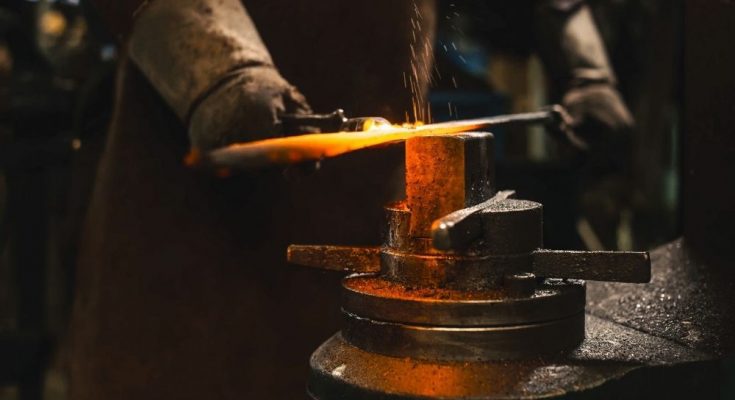Modern blacksmithing is a fun and interesting hobby or business that most people don’t know much about beyond pop culture references. If you’re unfamiliar with proper blacksmithing as well, keep reading to discover the top five fun facts about blacksmithing tools.
All You Need Are the Basics
While you might initially picture a blacksmithing shop having dozens of tools lining the walls and workbenches, all you really need to start blacksmithing are a few basic tools. Once you secure a forge, an anvil, hammers, tongs, and smelting materials, you have all the basics necessary to start blacksmithing! Just don’t forget about safety equipment and PPE as well.
Crucibles Have Different Sizes
If you ever pick up a crucible in a blacksmithing shop or see one online, you might notice the small numbers and symbols inscribed into the metal. You might find this lettering on the inside or outside rim of the crucible or on its underside. Some long-time blacksmiths might not even know what the numbers on crucibles mean. They stand for the sizing of the crucible based on how much aluminum and bronze materials it holds. The aluminum reading is in kilograms or pounds, and the bronze one is in kilograms.
There Are Various Preferred Materials
While blacksmiths throughout history have used various materials for the craft (and still do), modern blacksmiths have a few metals that they usually prefer. They commonly use wrought iron and steel to create many tools and artisanal works. Some branches of blacksmithing, such as bladesmiths and jewelry casters, use different materials like precious metals as the staples of their craft.
Not All Blacksmiths Make Horseshoes
Some beginners might assume that modern blacksmiths only create horseshoes. Those who make horseshoes are called farriers. While some farriers do possess blacksmithing knowledge, most blacksmiths have the skills to craft much more than horseshoes. Farriers also use a variety of tools for fitting horseshoes and trimming horses’ hooves for the perfect fit.
Blacksmithing Equipment Is Sturdy
The average person might not understand just how heavy some blacksmithing tools are. For example, the average blacksmith’s anvil can weigh anywhere from 50 to over 500 pounds. There are lighter, more portable versions for training and travel blacksmithing, but most anvils are quite heavy.
Many people don’t understand all the tools and materials used in modern blacksmithing. Hopefully, you learned something new about blacksmithing with these top five fun facts about blacksmithing tools.



